Mortal Shell (PS4) Review – Host In The Shell
It dawned on me recently that the real reason I complain about the endless slew of Dark Souls knockoffs is because deep down… I just want one to be really good. Considering how much I used to hate the franchise, until Bloodborne turned me round on the action RPG style of game, I have developed a particular itch that needs scratching. After the disappointment that was Hellpoint, it seems like Cold Symmetry are having a go at stepping up to the plate with Mortal Shell. Eschewing sci-fi in favour of that classic Soulsian “old, enriched fantasy” setting, is it enough to satiate that itch?
Well, for the next… however long it takes you to read things, allow me to inhabit your shell and guide you through this fiendishly hard yet ultimately rewarding adventure…
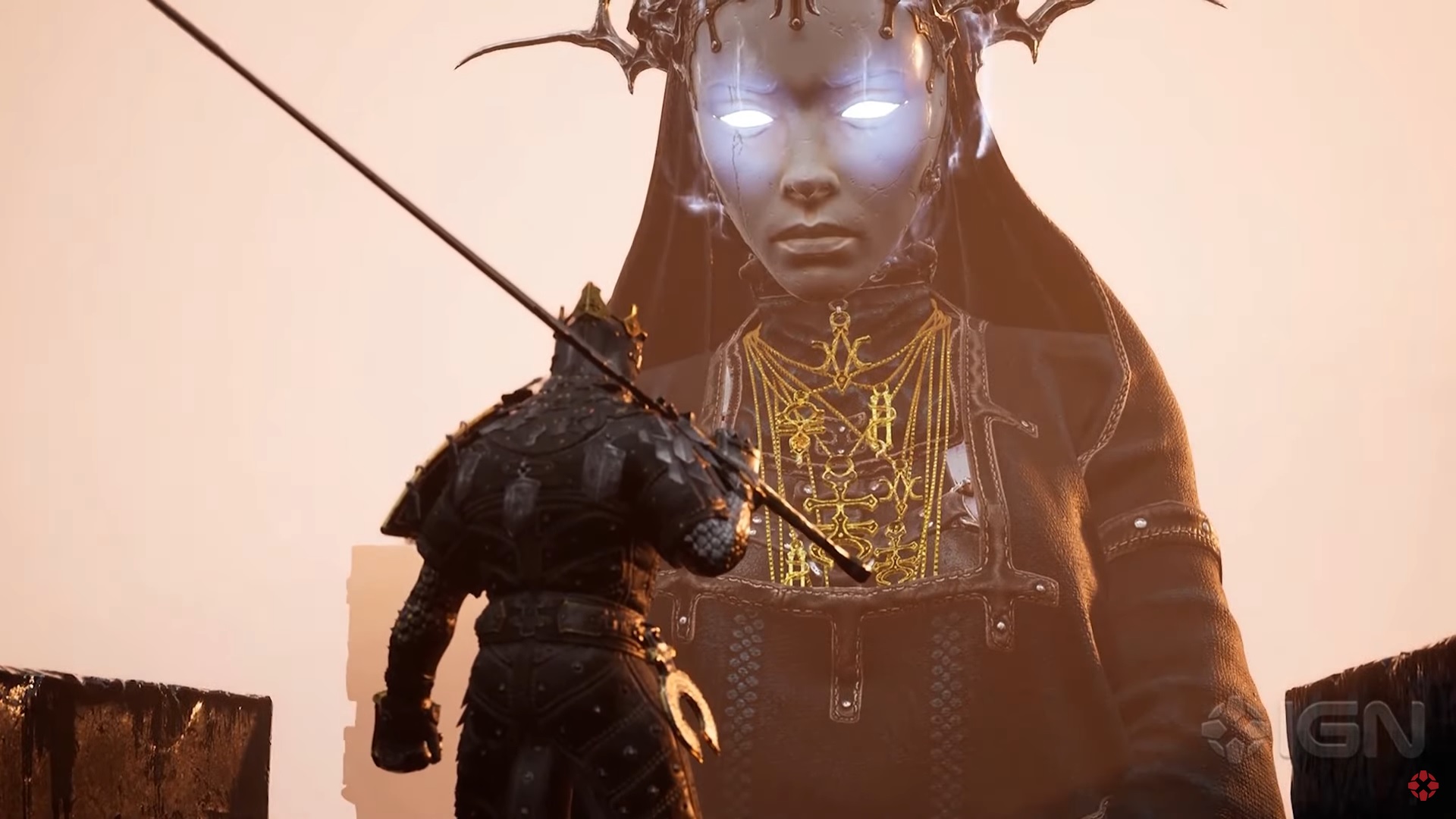
…What Elephant?
Let’s just get this out of the way, right at the start, so that there’s no awkwardness: Yes, Mortal Shell is very similar to Dark Souls.
From the stamina management, dodge-tumbling like a caffeine-riddled circus performer, hard-as-nails combat that you need to study and shoulder button combat. Even at first glance, it shares a similar aesthetic. Knights in the blackest of armour, a Gothic outlook on things and everyone talking like they’re in a post-watershed, horror version of Downton Abbey.
Yes, the naysayers could indeed bleat, “Dark Souls clone!” and clock off for a smug self-congratulatory.
However, having spent the best part of a week swearing and persevering with Mortal Shell, I can proudly say it’s actually quite different from FromSoftware’s darling series. The above points are all in there, and that’s not a bad thing. It’s a familiar format, as was Sonic to anyone that went on to play Ristar: it’s a template for others to develop on and utilise, not to be held by one particular franchise.
So, if you came here expecting me to bash on a “Dark Souls knockoff”, you’re going to pleasantly surprised… or disappointed, if that’s what you were hoping for.

Your Shell Is Mine
Mortal Shell takes the leveling and progression system from Souls and Bloodborne… and hoofs it out of the window. Sure, you still collect souls/echoes from fallen enemies, only in here it’s Tar, and you spend them on certain character-improving qualities, but not how you might imagine…
Shell’s main gameplay concept isn’t focused on you, the husk-type thing that you start the game as. Instead, it focuses on the fallen “shells” that you find littered about the lands. These shells can be inhabited, and it’s this mechanic that the game starts to shy away from the Soulsborne template.
These aren’t just any disposable bodies that you find, hopping between them at any point like Azazel from Fallen (a great Denzel Washington film, by the way). No, these are fallen warriors that hold some significance in this world of devotion to questionable gods and practices. These anima have backstories, where exploration and investment in them will provide more depth as you grow more accustomed to using them.
Each one of these shells has different attributes going for them, eschewing the class types of the aforementioned games in favour of a more “fixed template” style of game. The first shell you find, Harros, is your all-rounder. Decent amount of health and stamina, this shell will serve as an upgrade to get you into the mechanics of what to expect from Mortal Shell.
The next (that I found) was Solomon, the Scholar. Sacrificing a fraction of stamina for more health, he felt more of a mid-range tank at times. Conversely, the third I chanced upon tucked away behind an optional boss was Tiel, who had a high stamina and quicker evade than the other two. Of course, this Rogue-ish class nimbleness came at the expense of a lot of health. The last of the available four is Eredrim the Venerable. Where Solomon was the tank-like, Eredrim is the full Abrahams. Massive health but lacking stamina, he’s your typical Dark Souls shell: dip in for attacks, backtrack and recover stamina.
So whilst it’s not so much different play styles in the typical warrior/archer/mage mold that we’re used to, Mortal Shell does at least let you play with different shells to see which you prefer. Weapon-wise, there isn’t a whole arsenal of bludgeon and blade to practice with. Naturally, a sword is your first option, but further weapons can be unlocked by taking on another optional boss that wields it. In the hub area, there are spaces for four weapons, each with its own set of customisation options for more power and special abilities, which we’ll come back to in a bit.
But what about defensive items? Where do they come in…?
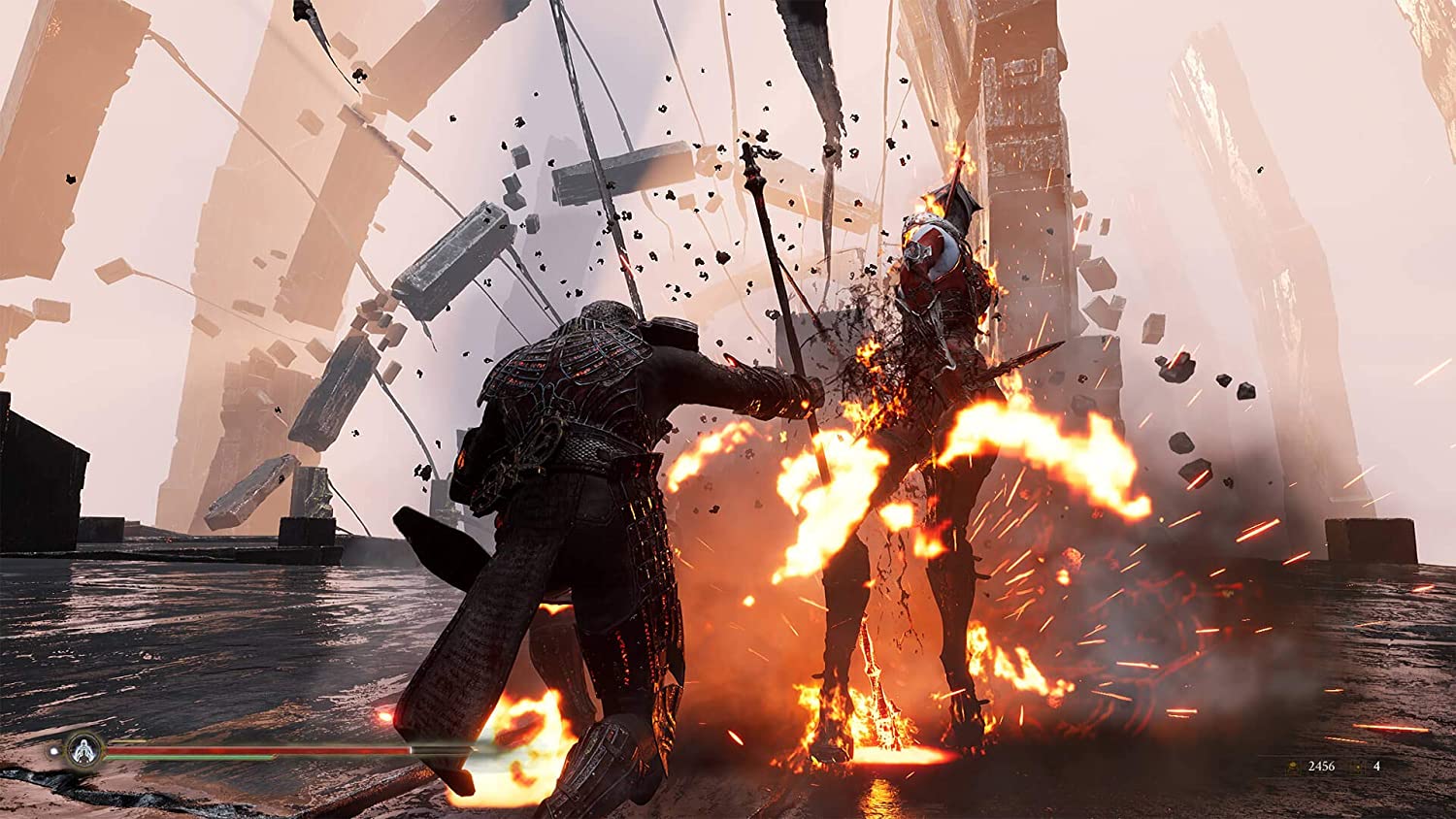
Feel Like You’re Hard, Do Ya…?
Again, in an attempt to break away from the Soulborne template, Mortal Shell offers a unique line of defence that I still can’t get my head around fully. There’s no shield gimmick for blocking, nor is there the “offense is the best defence” approach found in Bloodborne.
Instead, in the face of adversity and challenge, you can get hard. That’s neither pep talk nor innuendo, you can literally Harden yourself. This charged skill lets you turn yourself into a rock-like statue, allowing you to take one hit, damage free, that’ll interrupt your enemy. It’s a new take on the genre, to stand there and allow them to hit you, that I still forget to rely on.
You’re not just limited to standing still, either. For instance, you could swing your weapon as the enemy winds theirs up and press and hold the Harden trigger. This will store your swing, let your target hit you and stagger for no damage, then continue your swing as your Hardening breaks. You can drop onto a gang of undesirables, Harden midair and cause some stagger damage as you land amid them. It takes a while, and as I say, I sometimes forget about it until I’ve taken a few lumps, but it’s a nice reprieve to Harden before rolling away when it shatters.
The other system may be more familiar: parrying. Not initially given, you have to earn a piece of kit some early ways in that’ll let you parry attacks and counter. These cost Resolve, which can be accrued by attacking, not getting smacked about, and generally not dying. There are skills with some Shells that let you earn Resolve quicker, such as taking hits whilst Hardened and the like. You can earn buffs to implement on successful parry counters, such as health gain or attaching an explosive larvae to an enemy (for crowd damage purposes).
Again, it’s not totally removed from the Soulsian philosophy of combat. Cold Symmetry aren’t trying to rewrite the rule book. It’s just taking a familiar concept and adding variants to it. Which, depending on your outlook, can either be fun to adapt to or a right pain in the hoop. That’s up to you to decide.
On the offensive side of things, besides your sword, new weapons are found by entering arenas and tackling the tutorial boss again. Only this time he’s equipped with said new weapon. Defeating him each time allows you to swap out your current weapon for the immediate new one in an altar next to him, or traversing back to your church hub to change as you see fit.
So far, I’ve found a fire staff and a hammer and chisel, again switching up how you play with each Shell. These weapons can be upgraded with resources found, which will put up their attack power or unlock new special moves (at the cost of Resolve) for each. Your parry talisman can also be upgraded, allowing for easier timing windows and increased rewards on counter buffs.
There’s also a nifty looking projectile weapon called a Balistazooka, that looks like it could do some serious damage with the large bolts it presumably launches at people. I say this speculatively, because I’ve never managed to save up enough Tar to buy the tools to fix it.
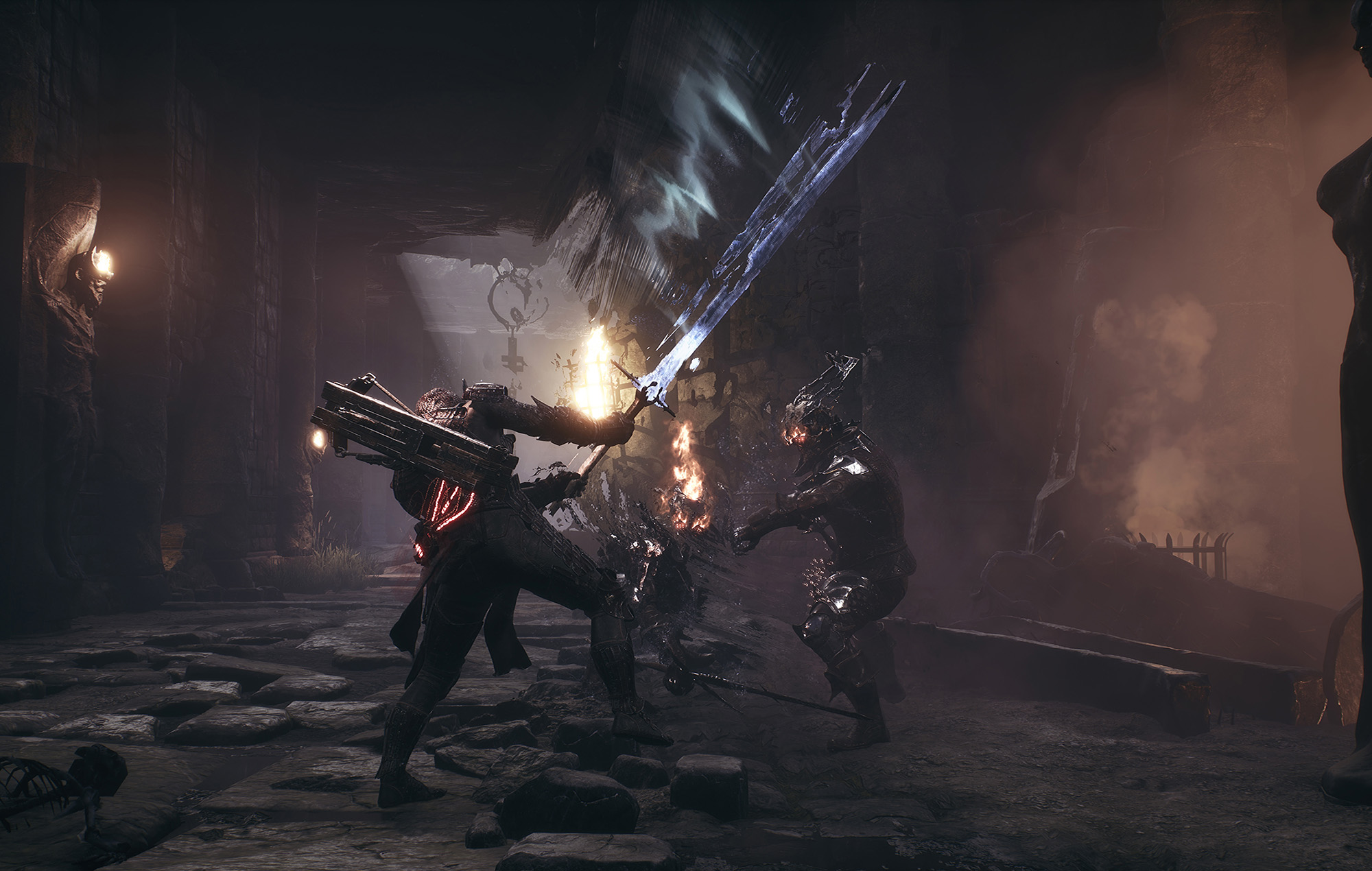
Getting Lost In Style
Unfortunately, there’s one Soulsism that Mortal Shell can’t shake: the “open world” stylings of getting absolutely lost. Whilst I get that the beauty and immersive nature of action RPGS is to dive head-first into exploring the unknown, would a map system really be that bad…?
Luckily, Shell is a beautiful looking game to get lost in (which isn’t bad, considering it’s a team of some fifteen people behind it). But it is very easy to get lost in it. There are times when I thought I’d find a new avenue to explore, only to find it loops back into another pathway I’ve been down. Yet other times I think I’m treading the same ground, only to end up in the Temple of Ash tucked behind the woodland area I was lurking about in.
It’s the same with the story and lore, too. Again, par for the course for these types of game (except Sekiro, that was pretty well narrated) that they don’t delve much in the way of exposition. But honestly, I don’t really have much of an idea as to who I am, was, or why I’m a husk that can possess Shells.
Each Shell you find needs to have its name unlocked upon visiting Sester Genessa (the equivalent of Bloodborne’s doll), which offers a glimpse at who they were. Purchasing skills offers more backstory into each, so it really does become an investment in each of the four. Which honestly, is quite a neat way of giving character motivation: you care more for learning new skills as you learn about those you inhabit.
Yet it’s the overall story that somewhat eludes me. As far as I’ve gleamed, I’m tasked with taking out a trio of big nasties known as the Revered: bosses that worship the… wrong kind of god, or something? Once I defeat a boss, I’m to take a Gland from some kind of altar and give it to the giant chained to the church hub… and that’s all I’ve worked out. I’ve only managed two Glands so far, so nothing revolutionary has happened in the world. There’s some kind of persistent fog that lurks only when you carry a Gland… but that’s as much as I’ve uncovered.
Alright, I’m being flippant, but sometimes it would just be nice to have a bit more raison d’être than, “I don’t know, go and kill all the things. Have fun, try not to die”.
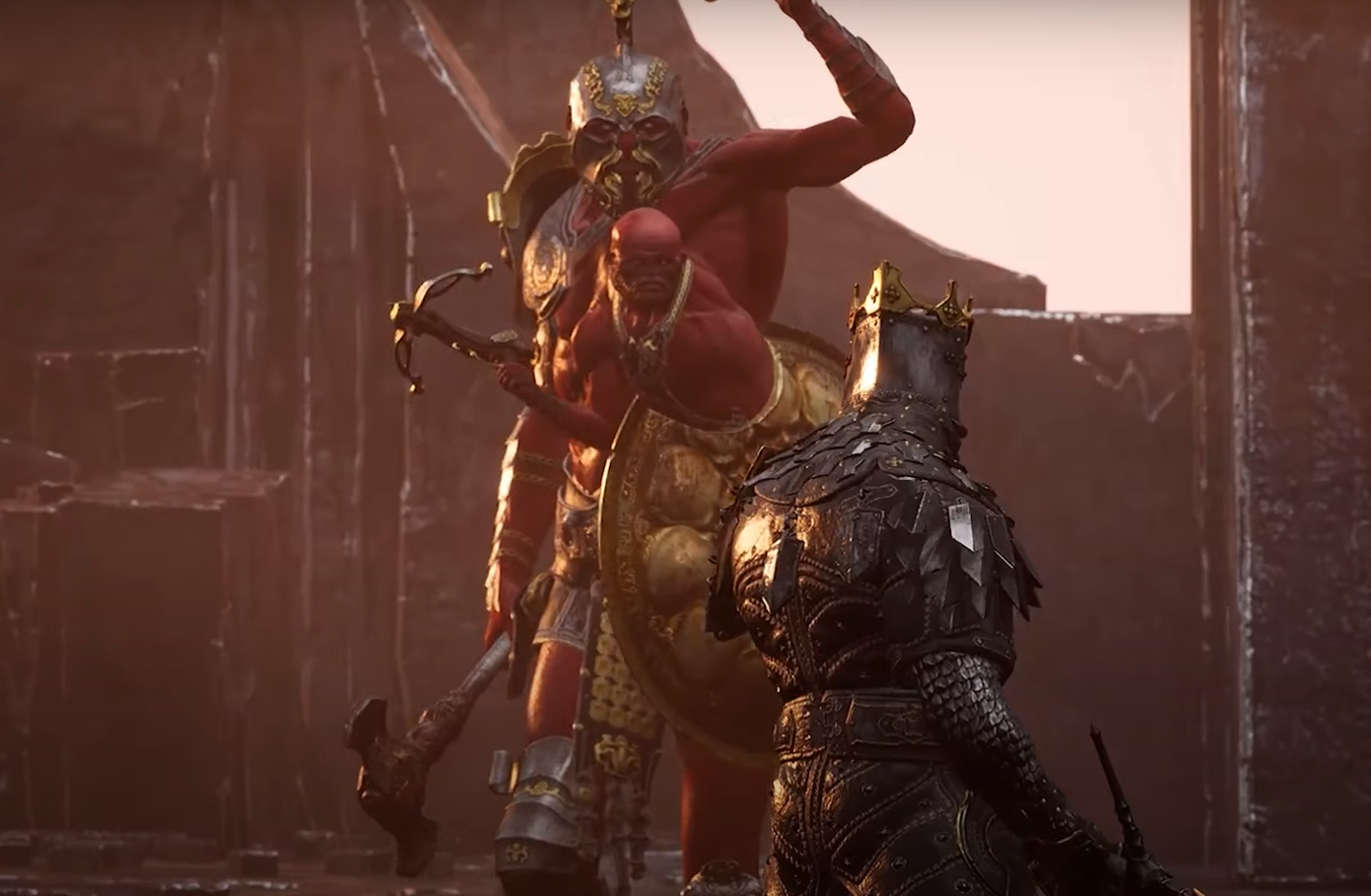
Is This Testing My Skill Or Patience…?
This, however, is the trap that a lot of these imitators fall into. Dark Souls and Bloodborne are tough because they expect you to learn enemy attack patterns and adapt to each encounter, whether it be against one or a couple of enemies at a time. Then, once you’ve sussed these out and gained confidence, you move onto a new type and repeat.
What it isn’t, however, is be bum-rushed by a gang of hostiles at once and hope you come out swinging afterwards. Nor is the constant hiding of an enemy around a corner or behind a door to spring out and surprise you. The worst offender of these was in the beautiful looking obsidian castle, in which a lever press resulted in three teleported magic enemies that absolutely stuffed me by surprise. That is not a challenge, Mortal Shell, that’s just straight up twattery.
It doesn’t help matters that you have to transition between some areas in the hub you’re already in. Moving to a new locale is one thing, but Shell has me crawling through more holes in tree roots and bases than Winnie the bloody Pooh. Which wouldn’t be bad, except that baddies can see you, and it takes a good few seconds for the transition to finish and regain control. So, as you can imagine, you’d be taking hits before you have the chance to avoid them.
In the absence of a map system, a fast travel system has been implemented… but I’ll be damned if I know how to find or activate it. As I say, I’m no newcomer to this style of game. I know they’re not always glaringly obvious, but the game has giving me zero information or loading screen tip on how to activate it. Maybe I’m not far enough in, but then, why would you introduce something so late if you’d like to revisit areas and grind to be able to get to new areas…?
On a more positive note, dying has quite an inventive mechanic behind it. Each time you respawn or visit Sester Genessa, your shell is granted a sort of “extra life”. When the life bar is depleted the first time, you’re smacked out of the Shell like Doctor Strange entering the Astral Dimension. You revert to your husk in tangible form, your Shell where it was hit, and you have a drastically reduced life bar to get back into it at full health.
It creates some tense moments as you cheese it back to comfort of a sturdier body, as you’re susceptible to about one hit before actual death. This is available only the once, recharged at each rest stop. You can purchase an ability for each shell (skills are non-transferable between them) that can grant you the chance to earn it back, fortunately. It’s not a complete fail-safe, but it adds an element of luck into combat should you get walloped too much.
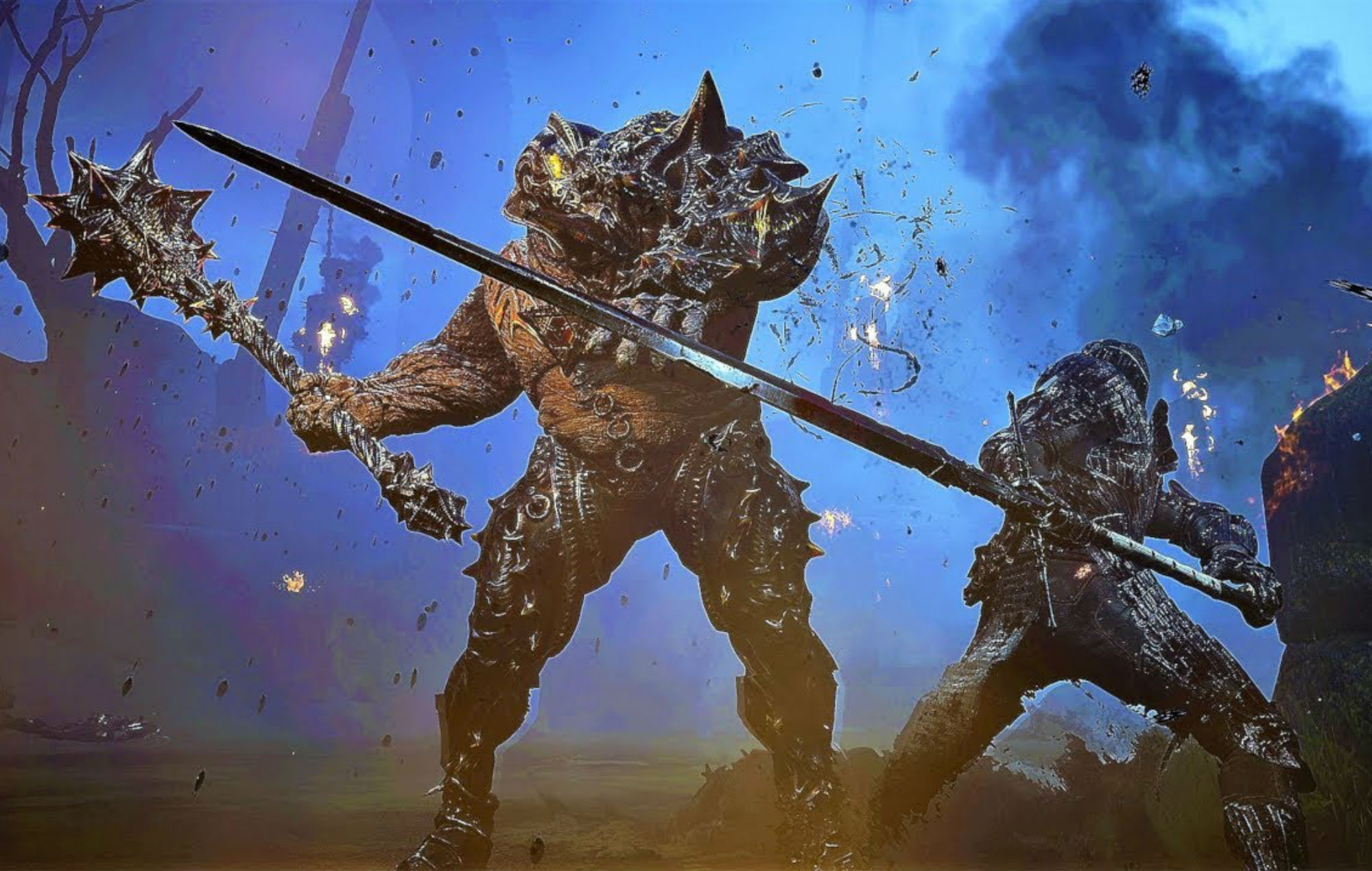
Grin And Brave It
Traversal and difficulty mishaps aside, I’m enjoying Mortal Shell. Much like The Surge 2, I feel compelled to finish it even after my review. In an ideal world I would have finished it before the review was out, but I’m not a pro at these games.
For a game made by such a small team to take on the heights of an established franchise and player base, it’s done a damned fine job of trying. It’s captured the bleakness of a world gone to pot, but it looks so good that you want to make it to the next area to see what visual wonders lie in wait. The Shells themselves look like medieval mockups of Space Marines from the Warhammer 40,000 universe, and the boss designs are right up there with FromSoftware’s artistic stylings.
Getting to grips with a smaller range of weapons and Shells means you feel invested in what you do learn, rather than the incremental loot and weaponry drops that some games bog you down with. Picking which skill to invest in across each one allows for more versatility and discovery in how fighting works best for you, even if farming for Tar and Glimpses needed can be a bit of a slog at times.
Instead of seeing this as a “knockoff”, consider it an indie take on something it holds in esteem. If you are a Souls fan, then this would be suited to you than something like Hellpoint. There’s no online components to worry about (which makes it annoying that pausing doesn’t actually pause, but I suppose it’s thematic to Dark Souls), so you can tuck yourself in to a surprisingly large action-adventure RPG.
I never experienced any technical issues, bar the occasional discarded lute that ended up in a piece of scenery. But nothing game-breaking, or causing horrendous slowdown, or anything that hampered my playing ability other than me getting myself killed.
Would I recommend this to anyone not familiar with Soulsbourne games? Well, that’s the hard sell: “Do you like games that will punish you?” is never a good conversation starter. But for a small scale title, and you do fancy something different, then Mortal Shell is worth every penny.
It may seem daunting and punishing, and it is. But its visual beauty and aesthetic has me compelled to explore more of this world and the Shells that inhabit it.

Mortal Shell is available from August 18th on PlayStation 4 (reviewed on Pro), Xbox One and PC via the Epic Game Store. A Steam release will be available in 2021.
Developer: Cold Symmetry
Publisher: Playstack
Disclaimer: In order to complete this review we were provided with a promotional copy of the game. For our full review policy, please go here.
If you enjoyed this article or any more of our content, please consider our Patreon.
Make sure to follow Finger Guns on our social channels –Twitter, Facebook, Twitch, Spotify or Apple Podcasts – to keep up to date on our news, reviews and features.
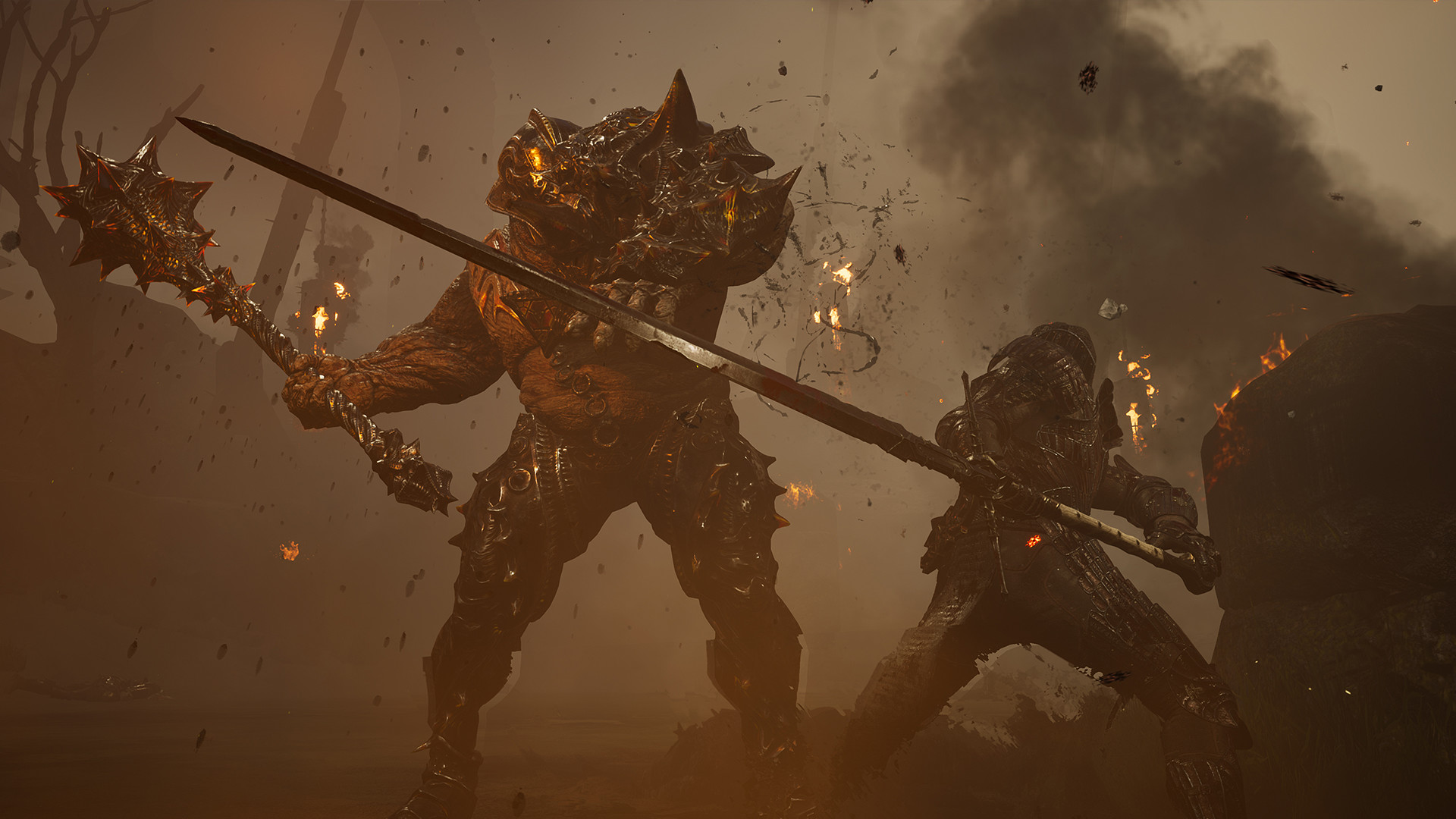

Pingback: Chronos: Before The Ashes Review (PS4) - Time After Time - Finger Guns